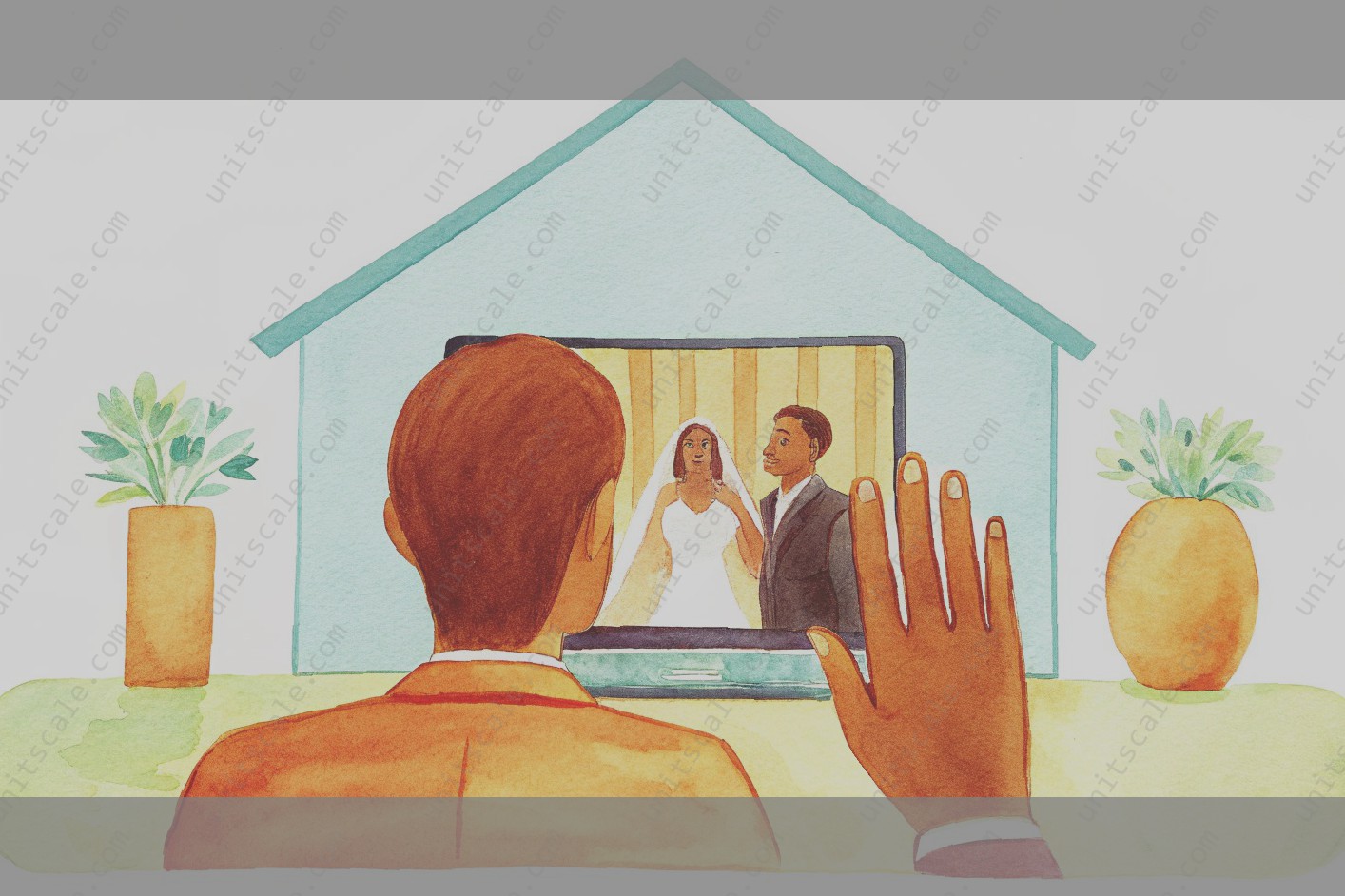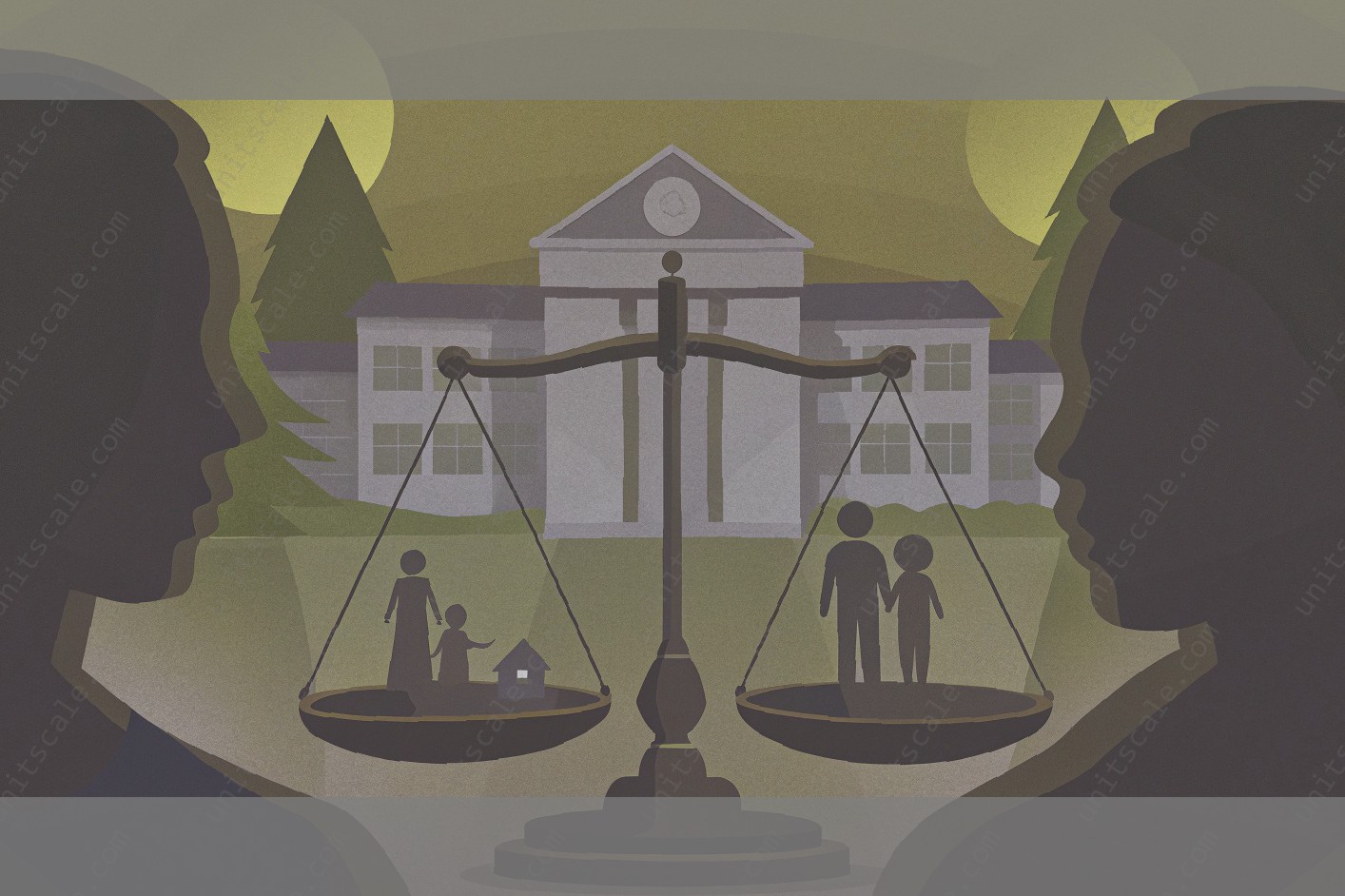All About Online Marriages – Trends and Facts
It comes as no surprise that the pandemic saw a surge in online marriage as many couples could not physically meet. It begs the question: can you legally get married online? In basic terms , online marriage is a marriage between two people under circumstances where they are not both required to be within the physical presence of an authorized celebrant. Technological advancements have enabled couples to marry according to their personal preferences or the ability to provide a specific service at their convenience. The COVID-19 pandemic has further seen the trend of online marriages become mainstream as Courts and Parliaments have removed the requirement for an authorized celebrant to be present.

Are Online Marriages Legal? All You Need To Know
Before jumping into cyberspace matrimony, you need to wrap your head around whether an online marriage is even legally binding where all parties involved and the event itself occur. In most situations, the short answer to this question is yes. However, every situation is a unique snowflake and one that requires some serious consideration.
There are two primary factors that impact a marriage being recognized after it occurs:
Whether Your Marriage is Recognized
Because there are so many different options these days for actually getting married (i.e., online, via live stream, at the mall, at a drive-thru, etc.), most states have created a minimum 24-hour waiting period to allow each party to cool off and think things through beforehand. As noted, most states will recognize a marriage when the event happens in their borders whether that event is online or anywhere else. However, a few outliers do exist. For example, Delaware has a law stating that only a member of the military or an overseas civilian employed by the federal government can initiate the application for a marriage license and register via the internet.
Plus, some states may have additional restrictions on who a couple can use as an online officiant. Some jurisdictions will only recognize the parties as married if there’s a rabbi or a priest or some sort of licensed officiant in the virtual room. However, practically—you’re not going to receive a bunch of legal problems if you and your virtual officiant pass around the wedding vows using your Skype account.
International Recognition
Thanks to the Internet, your marriage is a little more complicated once you start factoring in your international guests. For those living in the U.S., the good news is that other countries already recognize the legal legitimacy of online marriages. However, don’t assume that your marriage is going to be a ticket into international bliss. Most countries require additional steps before they’ll recognize you as a married couple.
How To Get Legally Married Online
The process of getting legally married online follows a multi-step approach that varies depending on the jurisdictions involved. The following is a step-by-step breakdown:
Step 1: Establish Residency
To get married online, at least one party usually needs to be a resident of the jurisdiction where the marriage will be registered. Many online marriage services operate under the laws of places like the U.S. Virgin Islands, where the residency requirement can often be waived under certain conditions.
Step 2: Secure the Appropriate Documents
Parties typically need to submit birth certificates, proof of identity, and potential affidavits to demonstrate that they are free to marry and have met other requirements. Services require copies for their files, but notarized copies may also be necessary for filing purposes.
Step 3: Officially Register the Marriage
Many services provide documents that can be filed with various government agencies to get the marriage registered and legally recognized in each of the parties’ home countries. The registration process itself can often be completed online.
Step 4: Complete Any Necessary Ceremonies
Some services offer optional ceremonies that can be attended through video conferencing software. Full ceremonial services may be packaged with additional support, such as legal documents, translation, and apostille services (where applicable).
Pros/Cons of Getting Married Online
With large segments of society shifting more of their social and financial interactions to the internet, the idea of getting married online is a natural extension of this trend. Online marriages offer a wide array of advantages, including convenience, accessibility and efficiency. The idea of being able to obtain a marriage license without waiting hours at the courthouse and saying your vows from the comfort of your own home is appealing. There are fewer obstacles in the way of marriage than ever before. While there are numerous advantages to online marriages, there are also potential challenges and drawbacks that you should thoroughly consider. For instance, there are often strict conditions as to where you may apply for your marriage license. Typically, you’ll be restricted to the issuance of a marriage license from your country or city of residence or that of your spouse . From there, the procedures for applying for a marriage license will vary from location to location. Another drawback is that the rules for recording and reporting the marriage to state and federal agencies differ and are not always clear. In addition, many controversial issues have arisen related to online marriages, such as whether the spouses would be able to receive the same benefits provided to those who had traditional weddings and whether the legislation pertaining to online marriages is constitutional. Finally, while the concept of online marriage may be preferable for busy couples seeking convenience, it requires both parties to have access to a computer as well as the internet and/or a phone capable of video conferencing. Accessibility can be an issue if either party is unable to access these due to financial limitations or technological restrictions.
Online Marriage FAQ’s
In this section, we will look at some commonly asked questions and concerns that people have when thinking about getting married online:
How does it work? Getting married online is legally and most commonly done through a proxy wedding. This means that the couple obtains a marriage license in their place of residence, perhaps sends in the paperwork, and a third party (such as a pastor or a notary) conducts the ceremony via an online video service such as Facetime, Skype, or Google Hangouts. Attorneys best know about the proxy marriage concept, but any notary or pastor should be able to get your license and perform the ceremony.
Is this legal? Because proxy marriages are done according to the laws of the state in which the couple has obtained the license, they are just as legal as a traditional marriage. That being said, not all states recognize proxy marriages, which means the couple will not be recognized as married there.
Are proxy marriages valid in my state? That depends on the state. While proxy marriages are valid in all states, only Montana authorizes them even if the other state in which the spouse married is not recognizing it. All other states either refuse to recognize proxy marriages, only recognize proxy marriages occurring in their own state, or simply list the circumstances in which their state approves the use of proxy marriages. The laws are very confusing and ever-changing to govern this type of marriage, but keep in mind that you will need to contact a person who has worked with proxy marriages before if you seek additional information on the legality of your proxy wedding.
What are some risks? The obvious safety risk is that you will get catfished, meaning that the person isn’t who they said they were. However, this is also possible if you meet someone online and then travel to meet them in-person, so this doesn’t count as a specific risk to proxy marriages. Another risk you are taking is to do your homework first, even if you plan to obtain a marriage license in the exact state where they reside. You will need to find out if your state recognizes proxy marriages. If it doesn’t, then you may be stuck, as many states also have mo requirements for proxy marriages, which means that you may be unable to visit there or need to find another location for your honeymoon or even for your next visit.
Follow-Up Checklist Don’t fret! Many couples find themselves in this situation. If your employer does not recognize proxy marriages, don’t be defensive, as many employers avoid telling their workers the truth about various forms of marriages. Instead, check other places for jobs, as employers in more liberal parts of the country still understand that a couple seeks to move in together and to be recognized as legally married.
Now that you have read our information on online marriages, go and see if they are right for you!
The Future Of Online Marriages – Trends
With the rapid advancement of technology, it is fair to assume that the way we marry may transform as well. Online witnesses are already becoming a reality and even the "goal post" may be portable. Yet, the legal system to adapt these technologies into the age-old tradition is slow and clunky.
The biggest challenge for online wedding in the future remains the jurisdiction. While people will increasingly cross state lines while planning their wedding and traveling to a physical location for the ceremony , they will also cross country lines. It will be a long time before witness in one country is accepted as a valid witness for a couple in another. The question of whether both parties involved in an online marriage are present and capable of consenting to the marriage is a question that almost always arises when questioning the validity of an online marriage. In "marriage-less technology," the need for a third party has been a critical reason for "extending" the marrying process for some time. It is hoped that as technology evolves, laws will shape up to accommodate with it.


